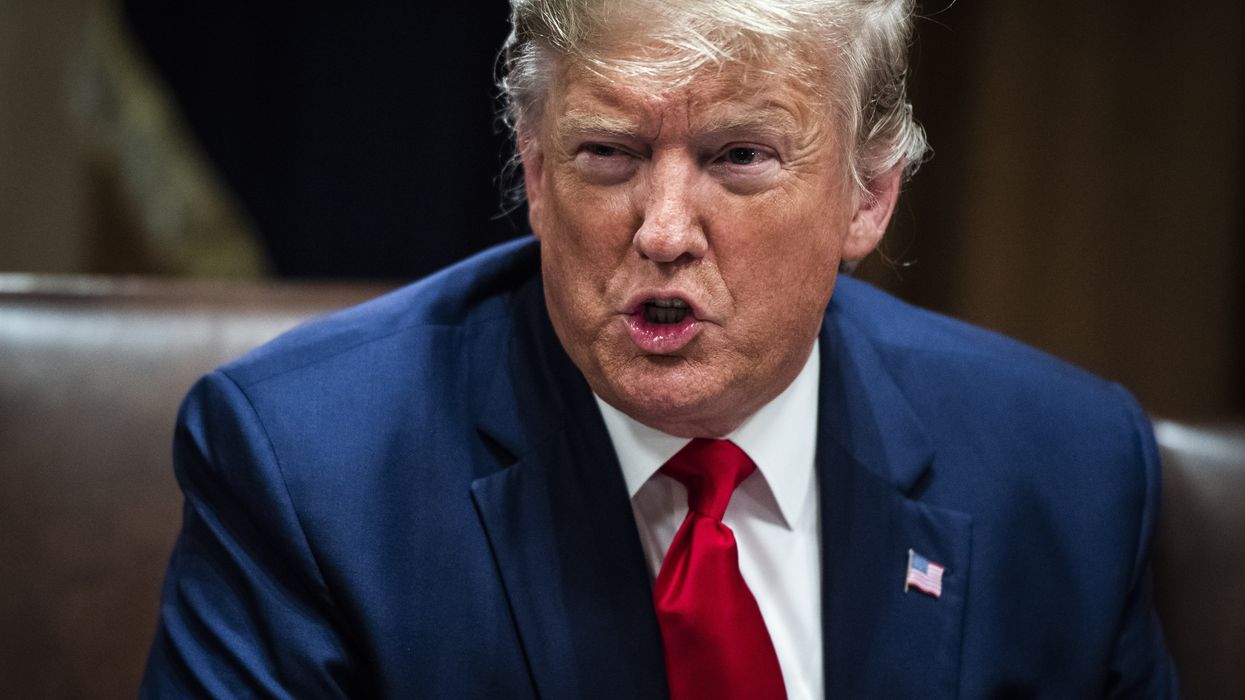As Donald Trump returns to power, we face more than two choices. We can defend a broken status quo, we can dismantle it — or we can transform it into something stronger.
"Our government is stuck in the past, bogged down by bureaucracy and incompetence. The Democrats had their chance to fix it, but they chose to maintain the status quo. It's time for real change." — Trump, Oct. 28
The day after a historic election, the headlines on my phone were loud and clear: “Trump storms back to power.” Across the country and around the world people are grappling with what this means — not just for the next four years, but for the future of democracy itself.
Beneath the shock, a deeper message resonates across red and blue states alike: Americans are calling for change.
A Turning Point for Democracy: Addressing Fear, Frustration, and the Call for Change
Trump’s re-election has sparked deep fears for many, both enemies and friends of this country. Women and marginalized communities who feel their rights and protections are at risk feel especially and rightfully concerned. For many, this election outcome is more than a political shift; it’s a personal blow, casting uncertainty over issues that impact their daily lives. These fears remind us why a truly transformative democracy is so essential — a system that listens to all voices and protects everyone, not just the powerful. Building this kind of democracy isn’t an abstract goal; it’s a necessary step toward a future where no one has to fear being left behind.
At the same time, many on the left may see Trump’s victory as an endorsement of divisive and dangerous views. It's helpful for me to understand that much of this vote was less about supporting one person’s ideology and more about rejecting a system that feels unresponsive and out of touch. Many are willing to accept flaws in the hope of real change.
This election reveals a deep hunger across the spectrum for a system that truly serves people — a vision that a transformative, inclusive democracy can actually fulfill. In Trump's words, it's “the greatest political movement of all time.”
“They came from, they came from all quarters. Union, nonunion, African American, Hispanic American, Asian American, Arab American, Muslim American, we had everybody and it was beautiful.Union, nonunion, African American, Hispanic American, Asian American, Arab American, Muslim American, we had everybody, and it was beautiful.”
Looking at the map of county shifts, it’s clear that people across the nation voted to break from the status quo. This isn’t simply about Trump; it’s about a widespread hunger for transformation in a system that many feel has failed them. And yet, the options we’ve been given feel incomplete, reduced to two unsatisfying choices: defending a broken system or rolling the dice on disruption.
This brings us to a real choice, one my mentor Ken Cloke captured best on the Omni-Win Project Podcast: “When democracy isn’t working, we face two choices: more democracy or less democracy.”
The Three Paths Forward: Defend, Disrupt or Transform
- Defending the status quo: For many Democratic leaders, protecting democracy means standing against Trump, painting him as an existential threat. Yet, as political analyst Astead Herndon pointed out on The Daily, this approach often sounds like a defense of the status quo — a system that, for too many, is already unresponsive and brok en. In focusing on Trump as a unique problem, Democrats risk overlooking a crucial reality: that the system itself has left many feeling ignored and excluded. “When you criticize Trump for being a threat to democracy, you may reinforce the idea that you think democracy is going well for people,” Herndon noted, “when that poll shows it’s not.”
- Disrupting the system: Trump’s supporters aren’t merely seeking to tear things down for the sake of chaos; they see disruption as a path toward reclaiming power from entrenched elites. In his victory speech, Trump framed his win as a mandate to “help our country heal … a country that needs help very badly.” His campaign has been a promise to “drain the swamp” and “restore power to the people.” While this message resonates deeply with those who feel alienated, Trump’s plan is light on specifics, leaving it more of a gamble on dismantling the existing system than a clear roadmap for improvement.
- Transforming democracy: There is a third path — a path that acknowledges the system’s flaws without tearing it down or preserving the broken parts. This path is about transforming democracy into a system that is participatory, inclusive and truly responsive to people’s needs. Rather than defending a status quo that excludes people or dismantling it without a clear plan, transformation means reimagining democracy itself. It’s about building a future where every voice matters and where decisions are made with, not just for, the people.
The Real Choice: More Democracy or Less Democracy
In this moment, it’s clear that Americans aren’t satisfied with business as usual. Defending the system as it is or recklessly dismantling it are responses born out of frustration, but neither truly addresses the underlying problems. To move forward, we need a different approach — a commitment to more democracy, not less.
By choosing transformation, we can build a win-win democracy that values every voice, includes every perspective and brings us together to shape a future that serves all Americans. This is our real choice: Let democracy fade, or reimagine it as a powerful force for inclusion, trust and progress.
If we want a democracy that truly works, we must change the structures that drive division and polarization. Conflict in politics often stems from three main ingredients: diversity, inequality and an adversarial process. Diversity and inequality are unavoidable parts of society — they add richness and drive change. But it’s the adversarial, win/lose process that turns political disagreement into chronic, divisive conflict.
In our current system, competing groups are forced to choose between all-or-nothing outcomes. This win/lose approach fuels rivalry, marginalizes dissenting voices and leads to resentment rather than resolution. Imagine, instead, a political process that fosters win-win solutions — a democracy that’s collaborative, inclusive and designed to meet the needs of all involved.
What Does a Win-Win Democracy Look Like?
Shifting to a win-win democracy isn’t about eliminating diversity or inequality; it’s about changing the process. Here’s what this shift would mean:
- Participatory and inclusive: Decision-making that includes all voices, values dissent and ensures that everyone impacted by a decision has a say in the solution.
- Interest-based solutions: Moving from demands and positions to understanding the underlying needs of all parties. Focusing on why people want what they want allows for creative, cooperative solutions that can satisfy multiple interests.
- Transparent and trust-building: A process that emphasizes transparency and fairness, building trust over time and reducing future conflicts.
This approach isn’t hypothetical — it already exists in tools like consensus-building, mediation and community dialogues. In a win-win democracy, every political decision is an opportunity to strengthen relationships and foster understanding, making democracy not just a system of governance but a continuous practice of collaboration.
The Path Forward: Transforming Democracy with Proven Solutions
Real democratic transformation is already underway, fueled by a powerful “movement of movements” dedicated to building a resilient, inclusive democracy. I’m fortunate to be connected with several of these initiatives, and there are many ways you can get involved:
Join the Pro-Democracy Movement of Movements:
- Democracy Resource Hub: This comprehensive directory connects you to tools, strategies and organizations working to renew democracy. It’s a perfect starting point to explore your role in this movement.
- Inter-Movement Impact Project: Join this coalition of hundreds of organizations coordinating monthly to strengthen democracy. Follow and engage with Generate Democracy on LinkedIn to become part of this collective.
- Practitioner Mobilization for Democracy: If you’re skilled in mediation, facilitation or community-building, this initiative offers events and resources to support your work in fostering dialogue and bridging divides. I’m proud to be part of this project, and we’d love to have you join.
- Healthy Democracy Ecosystem Map: Gain insights into the organizations and initiatives shaping a more inclusive democracy.
Explore Resources and Inspiration:
- Stay connected with updates and ideas from The Fulcrum, Democracy Notes, Generate Democracy!, Beyond Intractability's Substack and Horizons Project Vista.
- Find more inspiration and ideas on the Practitioner Mobilization for Democracy resource page.
Take Local Action:
- Engage in your community: Attend city council or school board meetings, join local advocacy groups or start neighborhood dialogues. Small actions add up, transforming democracy from the ground up.
- Consider starting a community-based project that brings democratic principles to life locally. Better Together America is supporting a network of local democracy hubs and state roundtables paired with a national combined funding campaign to catalyze and connect the field of democracy.
Real transformation happens when we all take part. These initiatives are here to support, inspire and empower you to help build the democracy we know is possible.
A Hopeful Challenge for America: Reclaiming Democracy as Our Own
Trump’s re-election might feel like a setback, but it’s also a call to action. If this moment proves anything, it’s that people are hungry for change — whether they’re frustrated with the establishment or the current system’s failures. This isn’t a time to retreat into defending what isn’t working or to celebrate a chaotic disruption. It’s time to reclaim democracy as our own.
Our future doesn’t lie in tearing down or preserving the old structures. It lies in taking what works, transforming what doesn’t and building a democracy that includes and serves everyone. This is a call to anyone who feels disillusioned, frustrated or left out. It’s time to make democracy reflect the people’s will, not the will of elites or disruptors alone.
Democracy isn’t something to defend or destroy; it’s something we must continuously build together. This is our moment to embrace democratic transformation and create a system that truly serves all Americans. Let’s get started.
Autrey, creator of the Omni-Win Project, works with individuals, groups and communities to help transform their conflict issues through a variety of conflict management and communication skills.



















